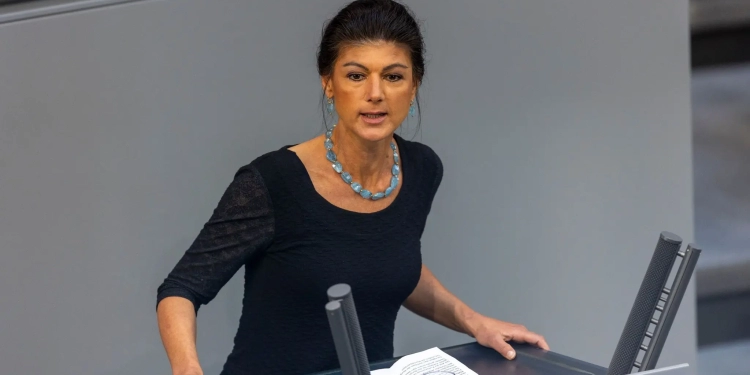German populist politician Sahra Wagenknecht is campaigning for the country to resume importing Russian oil for the PCK refinery in the eastern German city of Schwedt.
Wagenknecht, who launched the Alliance Sahra Wagenknecht (BSW) earlier this year, said her policy would push for the change in policy if they do well in upcoming elections on September 22 in the eastern state of Brandenburg, which includes Schwedt.
Germany halted Russian oil imports after the full-scale invasion of Ukraine in 2022, and took control of the refinery, which is majority-owned by a subsidiary of Russian state oil company Rosneft. That has left the future of the refinery uncertain.
In the first half of 2024, the plant’s capacity utilization was 76.2%, the German government recently disclosed in response to a parliamentary inquiry. Capacity utilization was 98.8% in 2021, before the invasion of Ukraine.
Wagenknecht told dpa on Saturday that buying Russian crude oil would be better than “laboriously and expensively beg for oil without in the end being able to achieve full capacity utilization” at the refinery.
Wagenknecht’s political party, which combines some traditionally left-wing social policies with right-wing positions on issues such as immigration, has opposed Germany’s support for Ukraine and struck a conciliatory stance toward the Russian regime under Russian President Vladimir Putin.
If BSW manages to become part of the government in Brandenburg, Wagenknecht said they wouldn’t resign themselves to Germany’s embargo against Russian oil but would actively pressure Berlin to reverse policy.
She called the adherence to the oil embargo against Russia a “stupid policy at the expense of Brandenburg and the entire country” which is not only jeopardizing jobs at the Schwedt refinery but also making energy unnecessarily expensive for everyone in Germany.
READ ALSO: Here’s why US is playing dumb about Ukraine’s plans to invade Kursk
Other Brandenburg politicians sharply criticized Wagenknecht’s stance.
Benjamin Raschke, the top Green Party candidate in the state, accused Wagenknecht of putting Germany at risk by relying on Russian supplies and cozying up to Putin.
He said it would also put a €400 million ($440 million) investment in the Schwedt refinery by the German government at risk.
Brandenburg’s incumbent state premier, Dietmar Woidke of the Social Democrats (SPD), has signalled his openness to talks with BSW after the elections and has not ruled out a potential coalition.
“If the BSW wants to prove that it can also govern, then we may talk to the BSW,” said Woidke. “Ultimately, however, government action needs to be pragmatic. The state of Brandenburg does not decide on migration issues or the future of Ukraine.”
dpa




